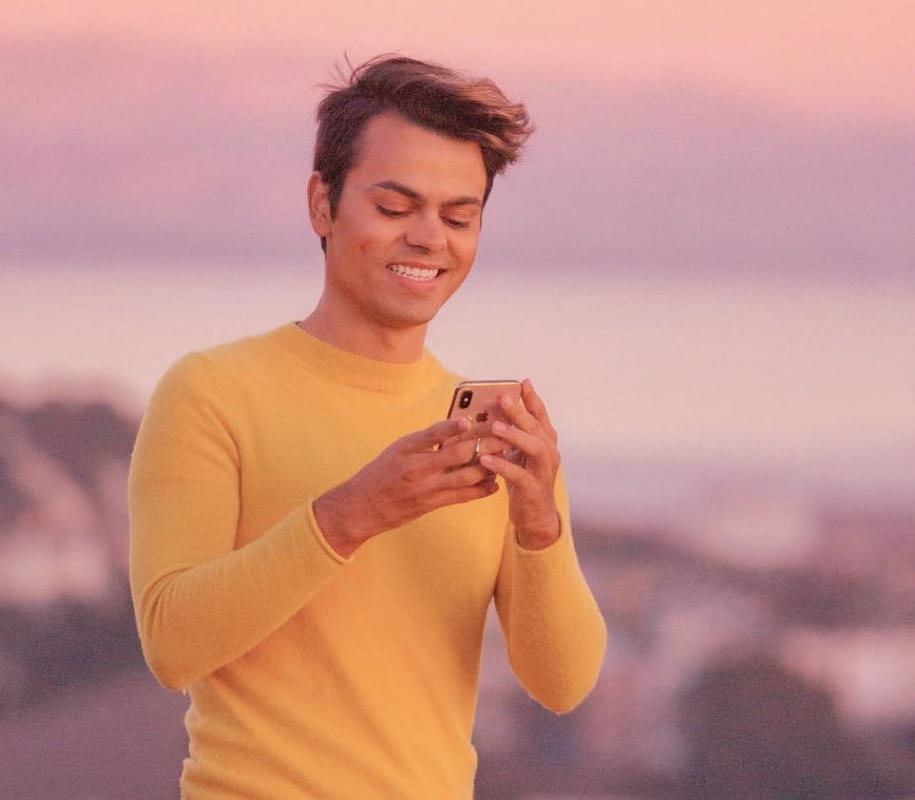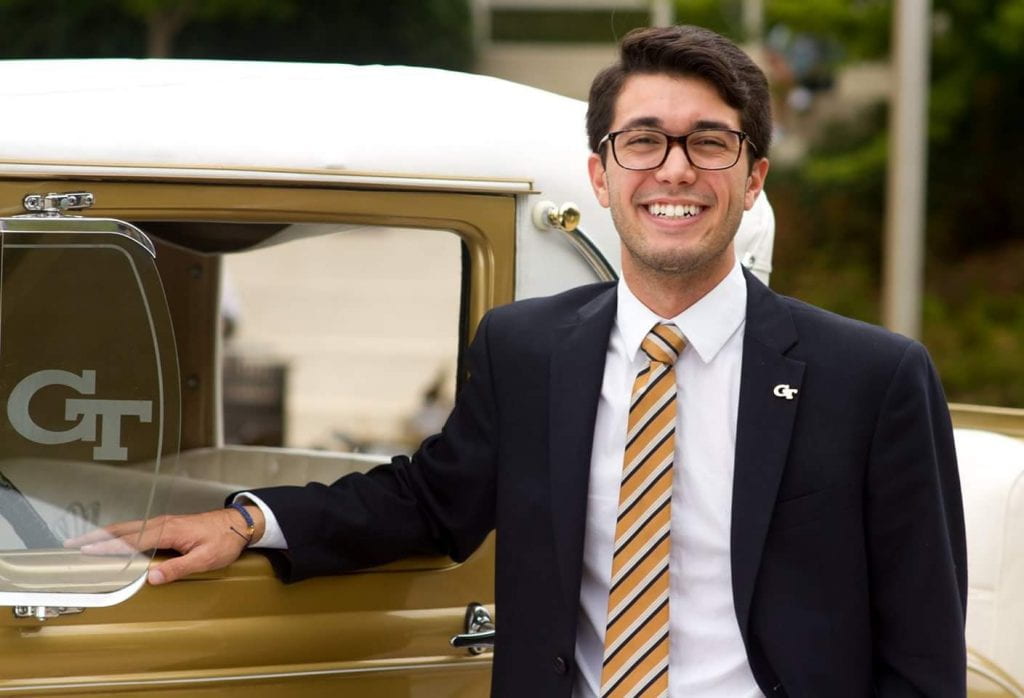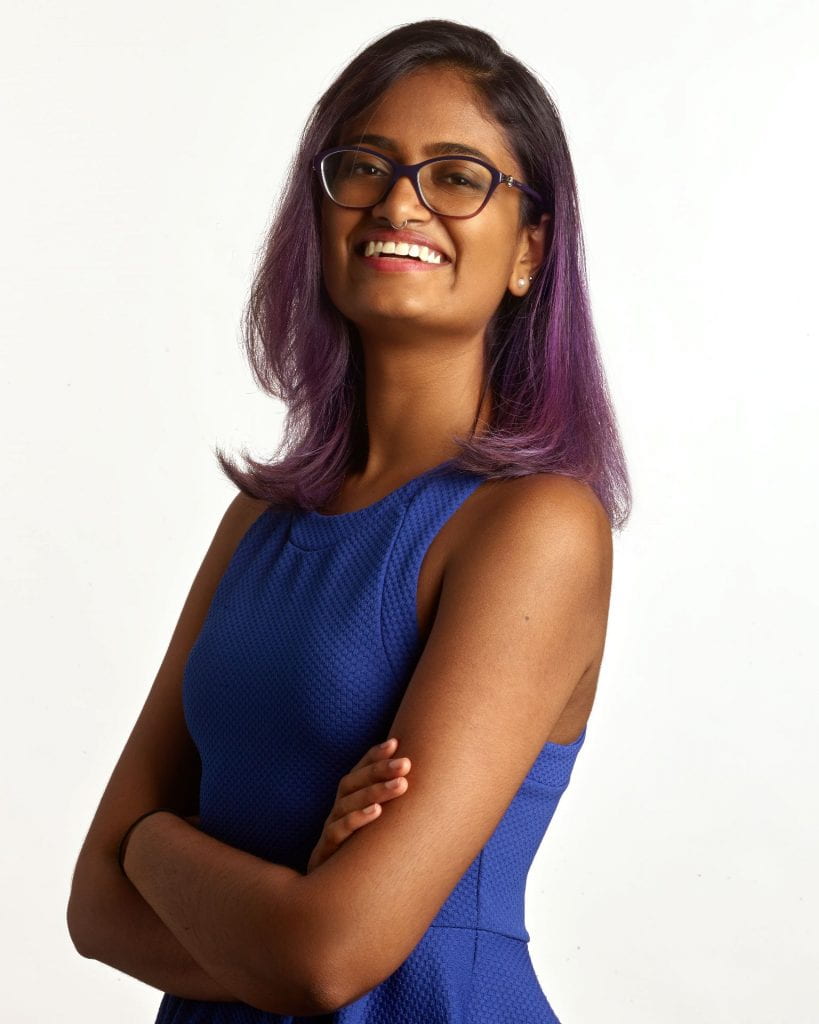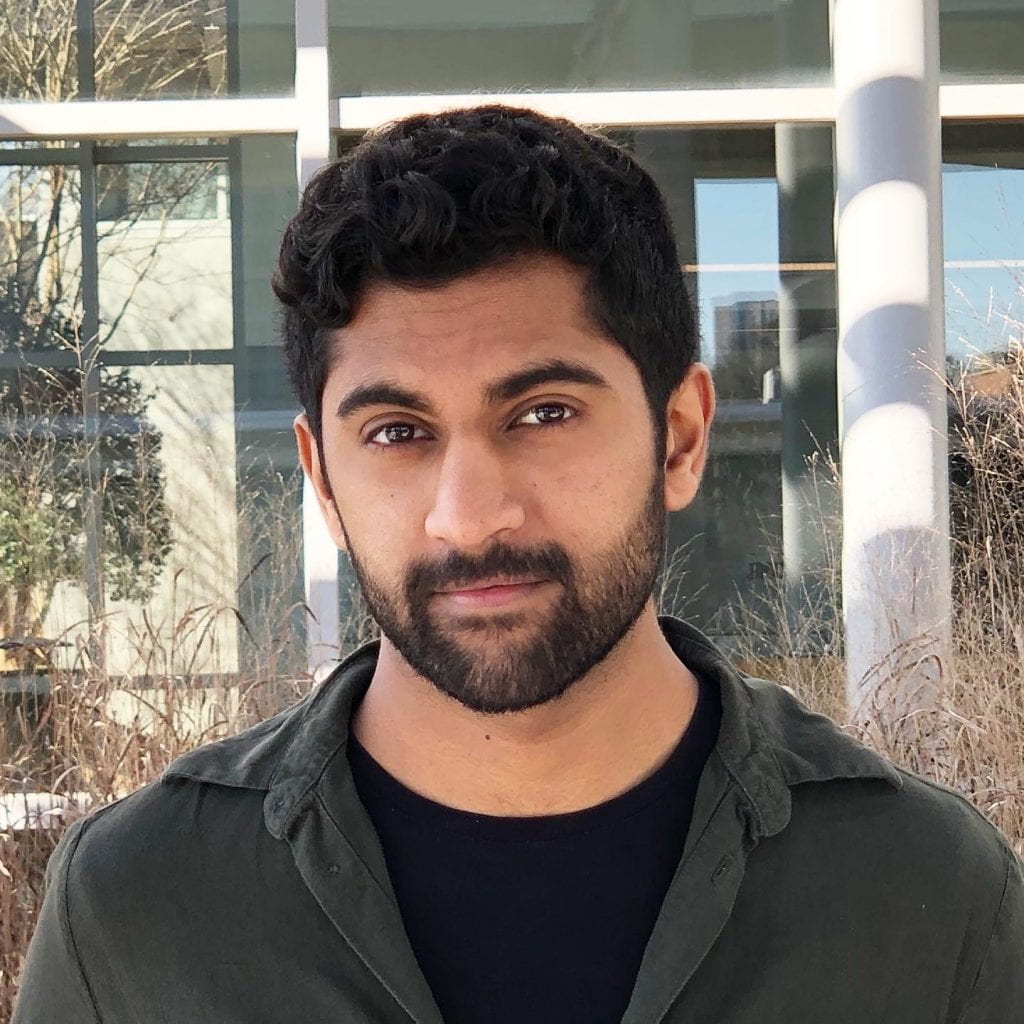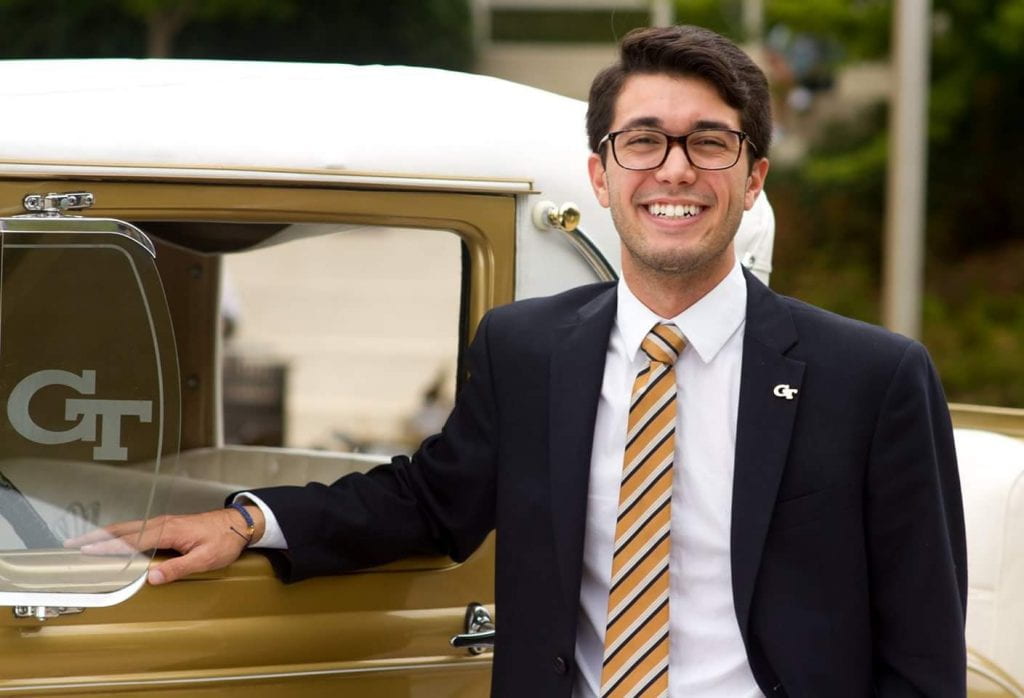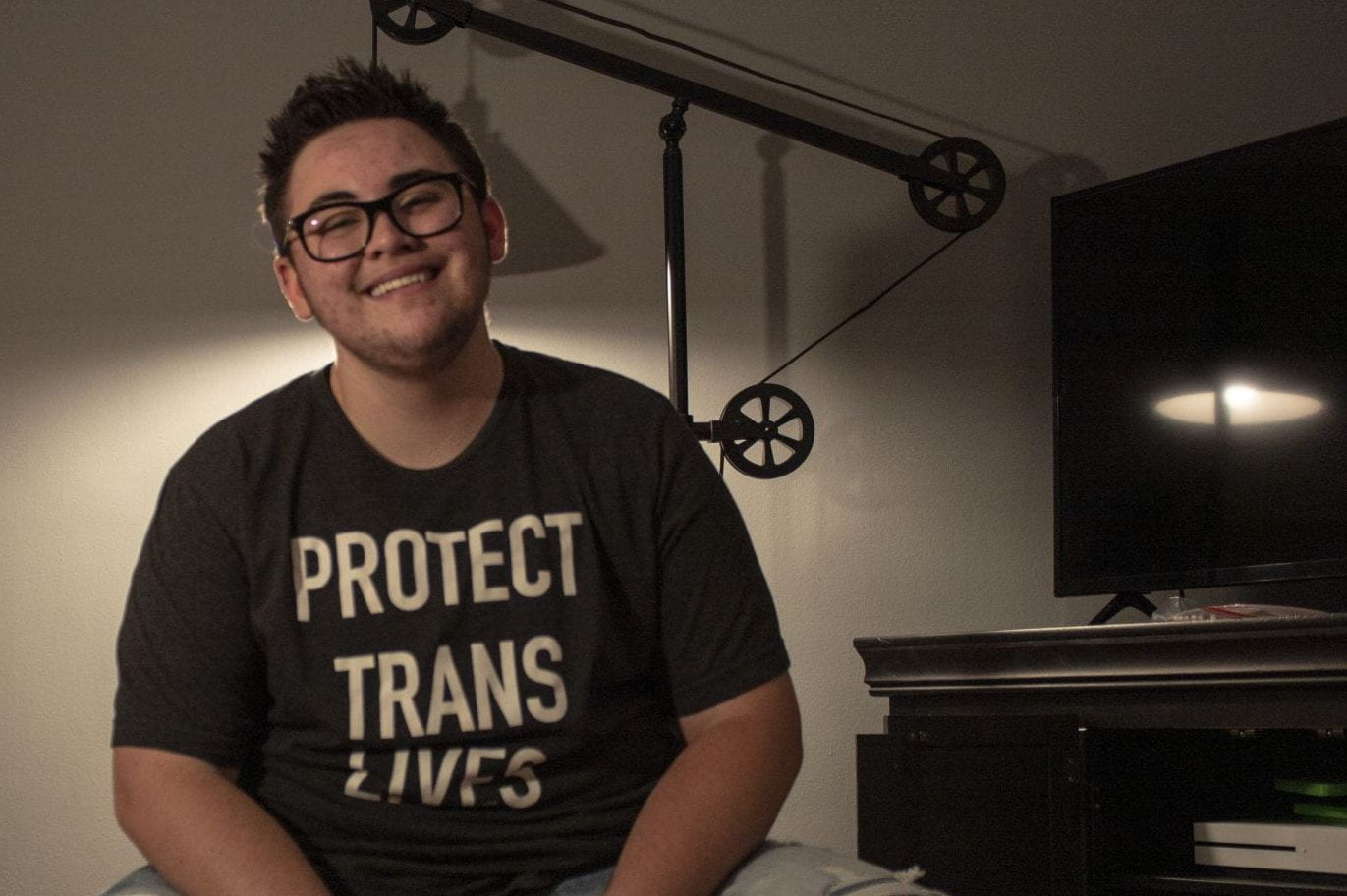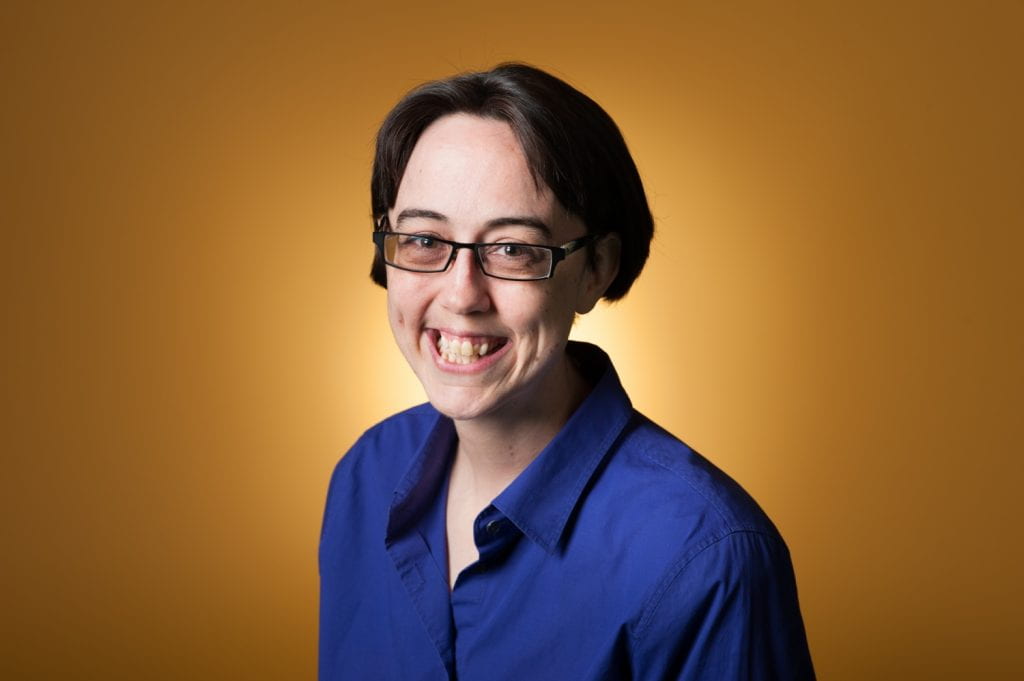Making Natural Language Processing More Inclusive for LGBT+ People

Being gay is more than just an identity for Ian Stewart. It offers a perspective on the world and frames how he views problems in computing.
“I think about bias all the time — not just for LGBT+ people, but women and racial groups,” he said. “This is a fundamental issue computing could help solve.”
Stewart brings this point of view to his natural language processing (NLP) research. During his Ph.D. in the School of Interactive Computing, he developed computational methods to study the variation in language use among different groups of people on social media. Now, as fellow at the University of Michigan, he is building systems that can adapt to specific social groups.
One of those groups could be LGBT+ people. Stewart presented on this potential at a 2019 NeurIPs Queer in AI workshop, a Georgia Tech alumnus-founded group for queer researchers that also raises awareness about LGBT+ issues in artificial intelligence and machine learning.
His workshop poster on how NLP could better serve queer people focused on three research directions he hopes the field will go in:
- Mental health: Many LGBT+ individuals turn to online forums to talk about mental health issues. These forums can be a data resource to understand narratives of queer experience, such as coming out. NLP could be used to identify these narratives by processing the text and structure to determine what is good or bad coming out experience. These could be provided to counselors looking to better treat LGBT+ patients.
- Identifying abusive content: As a minority group, LGBT+ people face online harassment and abuse. While NLP could detect abuse automatically, it can also be trained to have more nuance. For example, some words like queer can be acceptable within one community but a slur in others, whereas other microaggressions will be missed entirely.
- Gender bias: Models could be better trained to avoid gender bias against transgender people, such as misgendering in translation or negative associations with the word “transgender.”
“These systems have a long way to go to be inclusive,” Stewart said.
Queer in AI was the first identity-based workshop Stewart attended in his research community, and he would love to see more.
“Queer community gives you really great space to talk about shared issues and makes you think your concerns aren’t one-offs,” Stewart said. “I never had a problem coming out, but the experience can be sensitive, so I want bolster people who are going through difficult times.”
He believes more top-down leadership in academic spaces could make LGBT+ students feel more accepted.
“Pride is just being happy with who you are and accepting you’re the person who defines that,” he said. “If you get the chance to be out and proud in your work life, it can help other people also come out or feel more okay with who they are.”
Queer in AI Fosters Inclusion in the Research Community
Gender bias is one of the most pressing issues in artificial intelligence (AI) today, but what if even just sorting data by gender is part of the problem? This question is one of many that the group Queer in AI asks.
College of Computing alumnus and Google AI Resident Rapha Gontijo Lopes co-founded the group in 2018 to create a community for queer researchers and to raise awareness of LGBTQIA+ issues in AI and machine learning (ML).
Andrew Perry
Do you have any advice for someone who is thinking about being more open about their identity at work or school?
Research your company/potential company/school. Learn about their diversity and inclusion statements and about their queer-focused organizations. Learning these things will make you more comfortable. And if you’re feeling comfortable enough, join those organizations and get involved. And if you don’t find those things, you can either evaluate if they are things you need, or you can take the initiative to make them and raise them to your higher ups.
Take your time. Coming out isn’t a one-and-done event. You’ll have to come out every time you feel comfortable enough with someone. However, it is all on your schedule. You get to decide when you’re ready. You get to decide when someone gets to know that part of you.
Jobs and schools aren’t as important as staying true to yourself. Know that if you don’t feel comfortable at a job or school, you can find another. Loving yourself and being true to who you are are more important.
How do you identify in the LGBT+ community?
I identify as gay and queer, and my pronouns are he/him/his.
What does pride mean to you?
For the community, I think pride is accepting oneself and taking the steps to be one’s authentic self regardless of others acceptance. Pride is being unabashedly you and loving yourself no matter what anyone else says. For me, personally, pride is what I felt the first time I came out, and pride is what makes it easier to come out every time after that. Its also a wonderful time of year where I see my queer friends and allies celebrate.
How do you cultivate a spirit of inclusivity at the College of Computing?
When I was on campus, I was able to interact with people face to face and build up a spirit of inclusivity via clubs and office hours. In the OMSCS program, things get a little tougher. For school, whenever I’m having to introduce myself, I try to include my pronouns. If it’s an online meeting with video or usernames, I will add my pronouns next to my name. For work, I always try to explain my company’s inclusive and diverse principles. And when presenting at recruiting events or conferences, I also mention these principles.
What does queer community mean to you?
The queer community is like a big family. I’m not talking just mom, dad, and siblings. I’m talking distant uncles, crazy aunts, long-lost second cousins, because there are people that you’ve never met in your life, but you share a connection with. You can have two people with different ethnicities, religions, upbringings, and more and still have this common thread of being queer.
With all that being said, and much like any large family, there are still many problems in this community. We share this commonality of queerness, but we must address the racism, misogyny, transphobia, and many other types of bigotries in our community. There are parts of this family that need work.
What’s one thing allies can do to support trans, nonbinary, and gender non-conforming colleagues?
I can’t speak as someone who is trans, nonbinary, or gender non-conforming. But I can tell you what I’ve done and what I’ve learned as an ally.
First, be respectful. This should be a given, but for an ally, it may mean you take a second to think before speaking. Ask yourself if something you’re about to ask is an invasion of privacy or something disrespectful. For example, asking about someone’s deadname or about their genitals is disrespectful and an invasion of privacy.
Second, educate yourself. While it is not expected for an ally to know everything, you should take the time to do some research things on your own. Don’t put the responsibility of being taught how to be an ally on someone from the trans or gender non-conforming community. If you have a question, look it up yourself.
Third, relax. From my experience, when I my friends have come out as gender non-conforming, I felt like I was walking on eggshells or going out of my way to prove I learned their pronouns correctly. I was paranoid about making a mistake. Misgendering someone once or twice won’t get you a one way ticket to hell. Most people in the trans community will be understanding if you mess up. Just apologize and don’t make a habit of it.
Raksha Muthkumar
What does queer community mean to you?
Queer community is radical acceptance. Queer spaces are where we can be ourselves without moral policing and judgment. You want to marry your first girlfriend? Be safe, I love you. You want to celebrate your culture in a queer, subversive way? You want to overcome your addiction? You want to see the world? Be safe, I love you. We provide each other the grace and the resources to live happily and fully — that’s what queer community is to me.
How do you identify in the LGBT+ community?
I’m a cis bi woman of color, and I use she/her pronouns.
What does pride mean to you?
Pride to me means liberation. For queer folks that can mean the freedom to be with our loved ones publicly or to adopt kids and build the families we want. But to me pride also means solidarity with all others struggling for liberation in the world. There is no pride without shared struggle with all people.
How do you cultivate a spirit of inclusivity at the College of Computing?
I wish there was a greater celebration of achievements outside of capitalist definitions of success. Yes, students who land jobs at Google and Microsoft or a cutting-edge startup should be celebrated, but so should students who pursue teaching computer science in public schools or through nonprofits like Black Girls Code. I’ve been so proud to see College students challenging companies like Palantir for their unethical work by protesting at career fairs and speaking up when they see injustice. To me, an inclusive environment is one that takes pride in more than one type of success.
Do you have any advice for someone who is thinking about being more open about their identity at work or school?
I think that everyone should take their time. You don’t owe anyone your truth if they’re not going to be respectful and loving of you. You don’t have to martyr yourself to your workplace or your family if it means sacrificing your mental health. My ability to be out and proud are definitely a privilege; being out is something I do because I’m able to and it makes me feel good to be visible for those who need it, but I don’t think it’s something everyone has to do or feel guilty about if they can’t. “Coming out” is a journey and you can do it at different times and in different ways in different spaces. It doesn’t mean you’re not proud and loving yourself if you don’t feel like sharing it with everyone.
What’s one thing allies can do to support trans, nonbinary, and gender non-conforming colleagues?
Recognize that queerness is one intersection of many. The experience of a black lesbian might be different than a trans Hispanic sex worker might be different than a queer refugee or queer single mother. Educate yourself on the true rainbow of our experiences, the good, the bad, and the ugly. It’s true that there is so much queer joy and happiness out there, but there is also queer struggle that you may never have considered or seen on the surface.
Aadarsh Padiyath
How do you cultivate a spirit of inclusivity at the College of Computing?
I strive to cultivate a spirit of inclusivity by using research methods to improve the cause of the queer community. I became the lead developer and subsequently president for a campus club working on decreasing the stigma and increasing public awareness and prevention of HIV/AIDS. I also used various qualitative methods of human-computer interaction research to study how UX choices explicitly fed into unhealthy and racist tendencies in LGBT+-focused dating apps. I was surprised to find minimal CS research with a focus on the queer community. The opportunity to bring a communal mindset to computing motivates me to perform more research to make up for the disparate treatment.
How do you identify in the LGBT+ community?
I identify as a cis-gendered gay man with the pronouns he/him/his.
What does pride mean to you?
To me, pride is ultimately both a party and a protest. It is a celebration of continual self-acceptance while seeking liberation from systems and hierarchies that seek to exploit and oppress our communities.
Do you have any advice for someone who is thinking about being more open about their identity at work or school?
Being open about your identity is all about accepting yourself for who you are. However, it is also important to make sure you are surrounded by a supportive environment. I would recommend reaching out to other supportive members of the queer community or people you are already out to in order to help prepare you and form a wholesome support structure.
What does queer community mean to you?
The queer community is one of potential. When we come together and fight for the greater good, there’s no telling what we can achieve!


